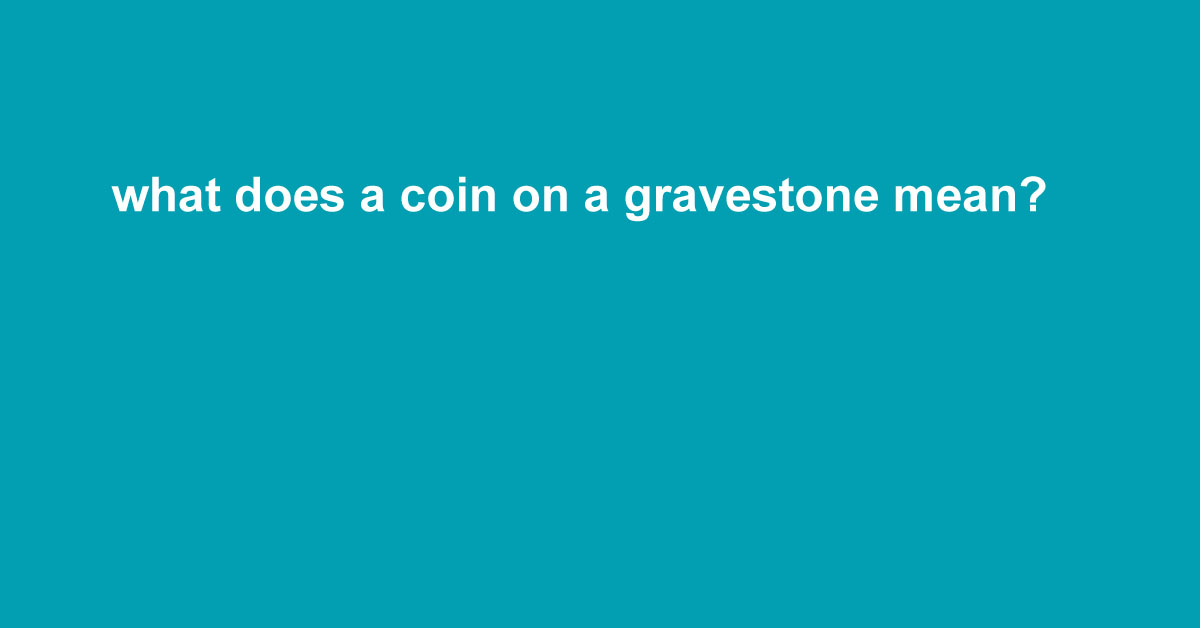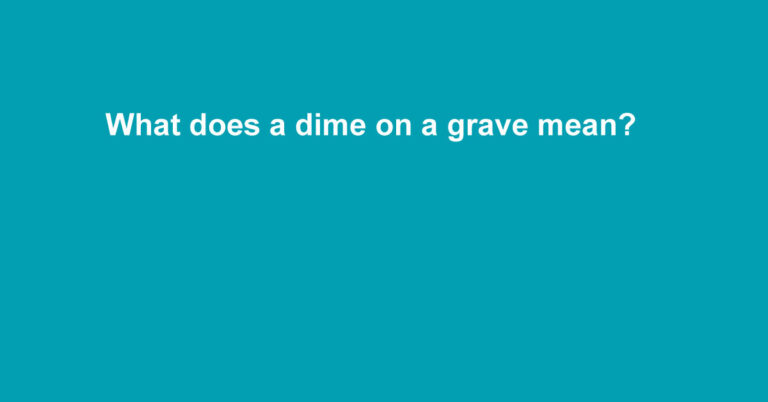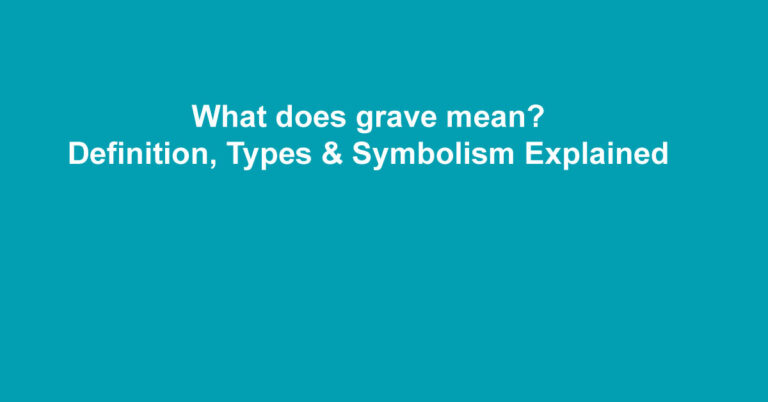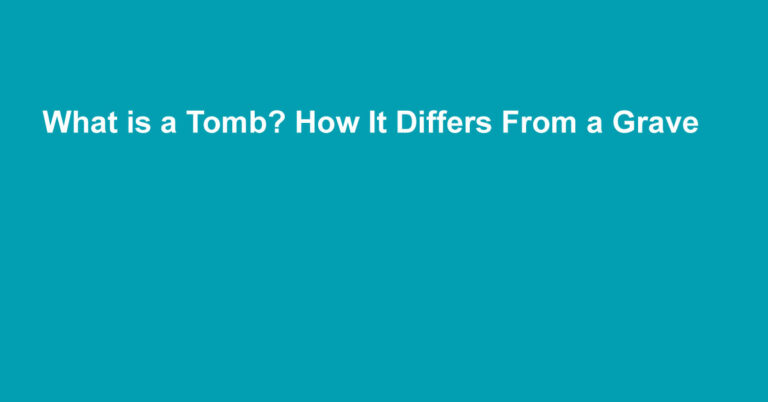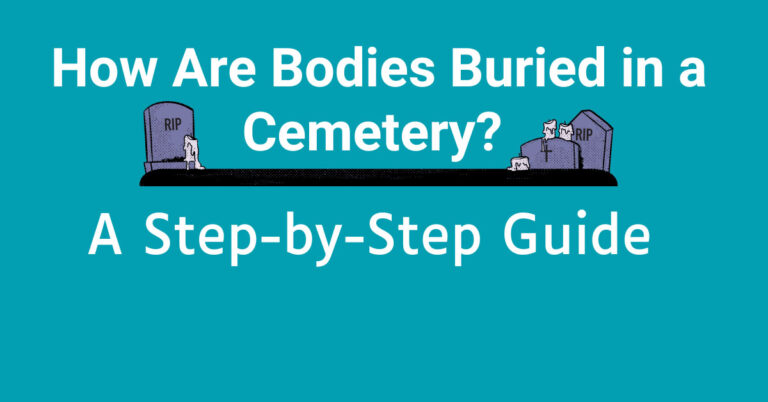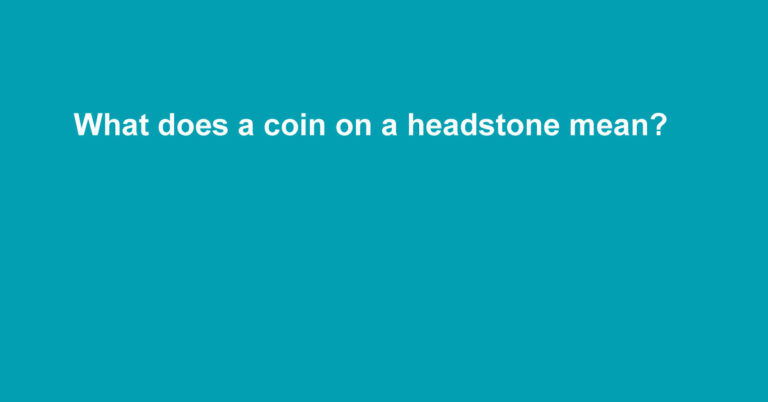what does a coin on a gravestone mean?
What does a coin on a gravestone mean? In many cemeteries, visitors leave coins on headstones as a way to honor the dead. This blog explores the meaning behind each coin, the tradition’s military roots, and why it remains a powerful symbol of remembrance today.
If you’ve ever walked through a cemetery and noticed coins left on gravestones, you may have wondered what they represent. While flowers and stones are common, coins carry their own powerful message especially in military and veteran contexts.
In this blog, we’ll uncover the meaning behind this tradition, its origins, and why it still resonates with visitors today.
The Origin of Leaving Coins on Graves
This practice is most commonly seen in the United States, especially at the graves of veterans. It’s a way to honor the dead and silently communicate your relationship with the person buried there. The tradition gained popularity after the Vietnam War and has continued as a quiet but meaningful gesture.
The Meaning Behind Each Coin
Each type of coin left on a gravestone carries a specific meaning, particularly when it comes to honoring military service:
Penny
Leaving a penny means you visited the grave. It’s a simple sign of respect and remembrance.
Nickel
A nickel indicates that the person who left it trained with the deceased at boot camp or during military training.
Dime
A dime means the visitor served with the deceased during active duty. It represents a deeper bond and shared experience.
Quarter
A quarter signifies that the person was present when the deceased died. This coin reflects the closest connection and often a deep emotional tie.
Why Do People Leave Coins Instead of Flowers?
Unlike flowers, which are symbolic of life and beauty, coins are more practical and personal. They do not wither or decay, and their meaning is tied directly to the relationship between the visitor and the deceased.
Leaving coins is also a quiet gesture. It doesn’t draw attention, yet it speaks volumes to those who know what it means.
Is This Only a Military Tradition?
While the coin tradition is most commonly associated with veterans, it has gradually spread to the general public. Some people now leave coins at the graves of friends, family members, or even historical figures as a sign of respect and memory.
It’s a way of saying: “I was here. I remember you.”
Modern Interpretations and Continued Relevance
Today, this tradition continues in both military cemeteries and public burial grounds. For some, it’s a cultural practice. For others, it’s simply a meaningful act of remembrance. Regardless of the reason, the coin serves as a small but powerful connection between the living and the dead.
FAQs About Coins on Gravestones
What does a coin on a gravestone mean?
It means someone visited the grave and wants to show respect. The type of coin can indicate the visitor’s relationship to the deceased, especially in military traditions.
Is it okay to leave coins on any gravestone?
Yes, but it’s most meaningful when you have a personal connection to the deceased. It’s always best to be respectful and considerate of the cemetery’s rules.
Is this a global tradition?
While most popular in the United States, especially among military families, similar practices exist in other cultures using different objects like stones or shells.
Are the coins collected or left permanently?
In many cemeteries, coins are collected periodically and sometimes donated to charities or used for cemetery maintenance.
Conclusion
Leaving a coin on a gravestone may seem like a small act, but it holds deep meaning. It’s a timeless way to honor the dead, express connection, and keep memories alive without saying a single word. Whether it’s a penny or a quarter, each coin carries a message one of remembrance, respect, and silent tribute.
